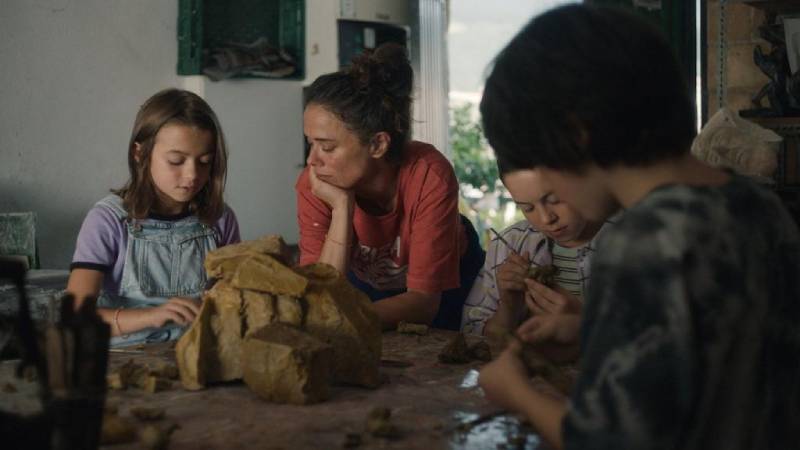




This Spanish film is the latest addition to a long string of movies about child transgender identity made in Europe. They include Belgian Ma Vie en Rose (Alain Berliner, 1997), British Just Charlie (Rebekah Fortune, 2018) and French Little Girl (Sebastian Lifshitz, 2020), to mention just a few. 20,000 Species of Bees does not add anything particularly new to the debate, however it delivers a tender and affecting diversity statement.
Aitor (played by female actor Sofía Otero, presumably selected through gender blind casting) does not want to be a boy. She prefers to dress like a girl. She does not like her masculine birth name. She also shuns her awkwardly unisex nickname, Cocó. Her confused yet loving and protective mother Ane (Patricia López Arnaiz) asks her what she wants to be called. The answer is heartbreaking: “I don’t want to be called anything”. The other adults are far less supportive. The father, the grandmother and the aunt think that someone “needs to have a conversation with Aitor”. Transgender identity is not something natural to these people. They understand that diversity is key in nature (hence the film title), but their comprehension does not extend to the little one at the heart of their family. They seek to find an external cause: “he is surrounded by too many women”, or accuse Ane of “overindulging” her child.
Gender is a linguistic minefield. In Spanish, all adjectives are either masculine or feminine, forcing the speaker to immediately reveal their gender identity. 20,000 Species of Bees is spoken is Spanish and Basque. Aitor/Cocó opts for words ending with an “a”, revealing that she identifies with a girl. For example, she calls herself “bonita” instead of “bonito”, raising a lot of eyebrows amongst her older relatives. Her decision to wear a dress could also ruffle a lot of feathers. Will she have a cathartic Ludovic moment in front of her entire family? The protagonist of Ma Vie En Rose dons a skirt and confronts the entire neighbourhood at the end of the film.

Children of around the same age as Aitor/Cocó are the least judgmental characters. Her brother Eneko is always prepared to play with his little sister, and at one point they even crossdress together. A little friend tellsAitor/Cocó upon seeing her willy: “There’s a boy at school with a fanny, and he’s very nice”. These generational differences suggest that LGBT-phobia has not been passed to the younger people of Spain, one of the first countries in the world to legalise gay marriage, and also at the forefront of trans rights (incidentally, just five days ago, Spanish MPs passed a new law allowing people aged 16 to change their gender without undergoing medical evaluation).
20,000 Species of Bees is a quiet and effective drama. It is deeply respectful of its characters, and never lapses into predictable resolutions. It is also a very stern movie. There are neither laugh-out-loud nor cry-out-loud moments. Instead, Aitor/Cocó and her family are allowed to reconcile their sentiments at their own accord. But the story is also a little protracted, at 127 minutes. It could have done with cutting a good 40 minutes without compromising the integrity of the characters and the narrative arc.
20,000 Species of Bees showed at the Official Competition of the 73rd Berlin International Film Festival, when this piece was originally written. Otero won the Best Leading Performance award. It shows at San Sebastian, the BFI London Film Festival and Tallinn Black Nights. In cinemas on Friday, October 27th. On various VoD platforms on Monday, March 18th (2024).
















